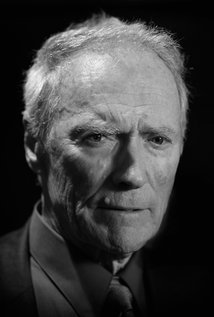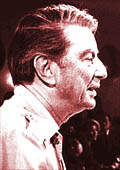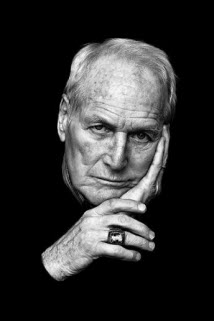Motherless Brooklyn (2019)


Content by Tony Macklin. Originally published on November 11, 2019 @ tonymacklin.net.
The makers of Motherless Brooklyn have a bridge that they want to sell you.
It's a bridge that starts with a novel and then collapses as a film overwhelms it. The whole undergirding is stripped away. It leaves us lost in Brooklyn.
Edward Norton directed his first feature, wrote the screenplay, and plays the leading character. The recent paperback edition of Jonathan Lethem's novel Motherless Brooklyn, says on the cover that Lethem's novel is "the inspiration for the major motion picture." Inspiration, no: manipulation, yes.
Lethem's novel is the tale of a Lionel Essrog - told in the first-person - about a young man who was an orphan who was mentored by Frank Minna, a shady neighborhood operator. What defines Lionel is that he has Tourette's syndrome. The novel relates his struggles and dangers. He fights to communicate and to face demons both internal and external.
Somewhere along the way Norton decided to junk Lethem's story and substitute his own. But he keeps the novel's title, leading character and his condition, some characters, and a few events. Everything else he deep-sixes.
This is the film's problem. It's as spastic as Lionel's tics. Norton should have cribbed the book's concept of a character with Tourette's and created his own tale. Instead he takes Lethem's work and betrays it.
This is not to say that a film can't be different from the novel it comes from. It can make some major changes. In Hud (1963), the leading female character was African-American. Patricia Neal won the Best Actress Oscar for her performance of the now-white character. The change - although one might question it - worked.
One should ask whether the book succeeded as literature, and the film succeeded on cinematic terms. How did the two forms compare?
The book is clever, insightful, and articulate. The screenplay Norton substitutes avoids depth. His dialogue has none of the punch and wit of Lethem's. He avoids naming Lionel's affliction as Tourette's. The film makes it seem more like a trick than a human condition. Norton's scene of Lionel blowing out a match three times when he tries to light a beautiful woman's cigarette draws the biggest laugh from the audience. It is not in the book.
But neither are Lionel's many lines about his condition. In the book he says, "Tourette's is just one big lifetime of tag." And, "Tourette's' muse was with me." And, "For once I was playing lead detective instead of comic - or Tourette's - relief." And, "Have you noticed yet that I relate everything to my Tourette's?"
Norton doesn't mention Tourette's.
Lethem's novel is witty and amusing. It is full of jokes, both vulgar and funny. Norton's isn't. It does have the shtick of blowing out matches.
The novel also is full of references to movies: The Wild Bunch, It's a Wonderful Life, Buster Keaton and The General, Chaplin and Modern Times, The Conversation, Mel Gibson, Only Angels Have Wings, Apocalypse Now, and On the Waterfront. You would think that would appeal to Norton. It doesn't.
Norton does have a Broadway play on a marquee - Kenneth Haigh and Mary Ure in John Osbourne's Look Back in Anger. [The movie starring Ure and Richard Burton was released a year later in 1958].
The movie entirely drops Frank's brother Gerard, who is a crucial character in the novel. Julia, another crucial character in the book, vanishes instead of becoming a major player. Major themes and other characters are absent: Zen, the Japanese, Lionel's relationships with cats, sea urchins.
A whole state is wiped out. In the book Lionel drives to Maine, where he had showdowns with two major characters. These scenes could be powerful and very cinematic, but the characters are forgotten or never were. The book's effective childhood experiences are deleted, and the second half of the book is gone, to be replaced in the film by a political tale of power and personality.
The book was published in 1999, and Norton facilely makes it politically relevant to 2019. New characters and dilemmas abound, but they're stilted.
Norton has compared his film to Chinatown (1974), but it's more like The Two Jakes (1990), which Jack Nicholson directed and starred in. But unlike Norton, Nicholson didn't write. For the sequel he dragged Robert Towne, the writer of Chinatown, into the project.
Norton has Lionel tell a woman, "I'm not Jake (the reporter)." No, you're not. The allusion to Chinatown says more than it means to.
Motherless Brooklyn has the hodgepodge quality of The Two Jakes. Both films are convoluted and lack clarity. Both are dim reflections of the original works that preceded them.
Both also suffer from being somewhat of a vanity project. I can't remember a film with as many close-ups of the leading character as Norton has of himself in Motherless Brooklyn. They're endless - one after another after another.
Norton is a serviceable director. He seems to borrow Clint Eastwood's idea of a tinkling piano. His cast is able. But the film stalls and careens.
Motherless Brooklyn is a better book than Motherless Brooklyn is a movie.
It's ironic how much Motherless Brooklyn is bastardized.











